The Essential Guide to Pool Maintenance: Everything You Need to Know

Owning a pool can bring joy and relaxation, but it also comes with the sometimes challenging task of maintenance. With about 10.4 million residential and 309,000 public swimming pools in the United States, pool care is a necessity for many homeowners.
This comprehensive guide provides step-by-step techniques and tips to ensure your swimming paradise remains clean, safe, and ready for enjoyment all year round. Let's make your pool upkeep less daunting and more efficient!
Key Takeaways
- Regular pool maintenance ensures clean and safe water by preventing harmful bacteria and algae growth.
- Proper upkeep helps prevent costly repairs by identifying potential issues early on.
- Routine maintenance extends the lifespan of your pool, saving you money on replacements.
Importance of Pool Maintenance
 Regular pool maintenance is essential for ensuring clean and safe water, preventing costly repairs, and extending the lifespan of your pool.
Regular pool maintenance is essential for ensuring clean and safe water, preventing costly repairs, and extending the lifespan of your pool.
https://www.youtube.com/watch?v=9FFEPVeb_Oo
Ensures clean and safe water

Proper pool maintenance hinges on the assurance of clean and safe water. By conducting routine cleaning and adding the right balance of pool chemicals, you manage to keep harmful bacteria and algae at bay.
This aspect of pool care is critical for ensuring water hygiene, significantly enhancing its quality control. A weekly routine sets the tone for regular pool disinfection, preventing contamination that can ruin your swimming experience.
Clean water isn't just about clarity—it's about creating a safe and healthy environment in your pool with proper water treatment procedures.
Prevents costly repairs

Keeping your pool in prime condition helps avoid expensive repairs down the line. Issues such as rust or mineral accumulation are often the result of neglect and can lead to costly fixes.
Routine pool upkeep not only ensures a clean and enjoyable swim but also plays a significant role in preventing these problems from arising.
With consistent care, including regular inspection and maintenance, potential issues can be identified and dealt with early on before escalating into major concerns that require pricey repairs.
Regular evaluation of equipment, for instance, aids early detection of malfunctions or signs of wear and tear. A well-maintained pool not only guarantees more safe swimming sessions but also saves you money by avoiding unnecessary costs related to repair or replacement due to corrosion or mineral buildup.
Extends the lifespan of your pool

Taking care of your pool regularly means it lasts longer, saving you from expensive replacements. Pool upkeep involves several tasks that directly contribute to its longevity. From skimming to balancing chemicals, each action preserves the pool's condition and enhances durability.
Routine cleaning prevents grit and grime build-up which can gradually damage the pool surface over time. Professional services not only ensure meticulous maintenance but also spot potential problems early on; they fix issues before escalating into costly repairs or replacement parts - bolstering your pool's lifespan significantly.
Basic Pool Care: A Step-by-Step Guide

To properly maintain your pool, follow these simple steps: run the pool pump regularly and clean or backwash the filter as needed; brush the walls and vacuum any debris from the pool; test and balance chemicals for optimal water balance.
https://www.youtube.com/watch?v=UocaSS2Jxmg
Circulation: Running the pool pump and backwashing/cleaning the filter
 Proper circulation is essential for maintaining a clean and clear pool. The pool pump and filter system should be constantly running.to maximize water clarity and keep debris at bay.
Proper circulation is essential for maintaining a clean and clear pool. The pool pump and filter system should be constantly running.to maximize water clarity and keep debris at bay.
It is recommended to run the pool pump 24 hours a day, 7 days a week.to ensure continuous operation. Backwashing the filter is also crucial in maintaining effective filtration. This process involves reversing the flow of water through the filter to remove accumulated dirt and debris.
Regular backwashing prevents clogging.and ensures optimal filtration maintenance. With proper circulation and regular filter cleaning, you can enjoy sparkling clean water all year round.
Cleaning: Brushing, skimming, and vacuuming

To keep your pool in top shape, regular cleaning is essential. Brushing the surfaces of your pool helps to remove dirt, algae, and other debris that may have accumulated over time.
This simple step prevents buildup and keeps your pool looking clean and inviting. Skimming is another important task that involves removing debris floating on the surface of the water.
By using a skimmer net or basket, you can easily scoop up leaves, bugs, and any other unwanted items that may be polluting your pool. Vacuuming the pool floor is also crucial to eliminate dirt and debris that may have settled there.
Chemistry: Testing and balancing chemicals
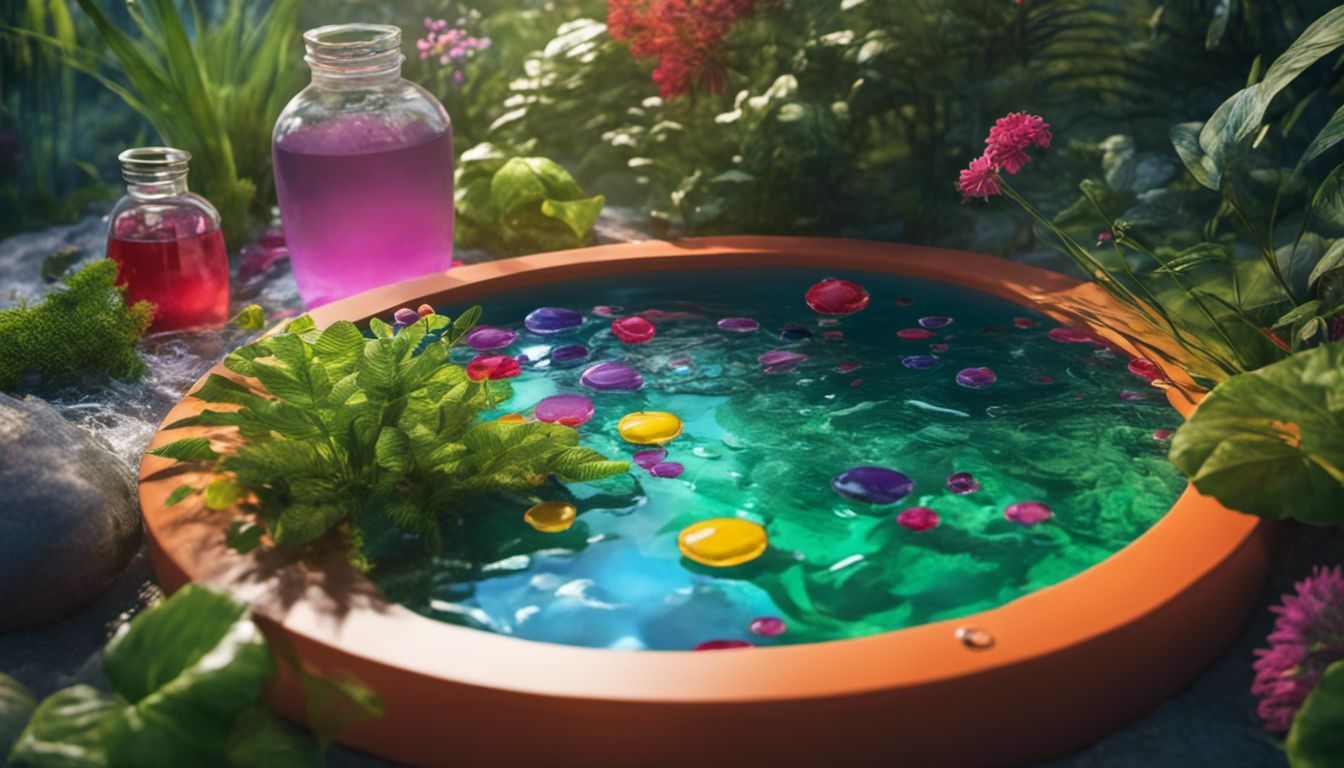
Proper pool maintenance requires testing and balancing chemicals to ensure the water is clean and safe for swimming. The chemical composition of the pool plays a crucial role in maintaining water quality, preventing algae growth, and promoting water clarity.
Regular testing is necessary to monitor the chemical balance and make adjustments as needed. By keeping the right chemical balance in check, you can prevent costly repairs and extend the lifespan of your pool.
So, don't forget to regularly test and balance your pool chemicals for a sparkling clean swimming experience!
Using Pool Covers: Benefits and Types (new outline with link to poolcover. co. za)
-116091810.jpg)
Pool covers offer numerous benefits for pool owners. One of the key advantages is thermal insulation, which helps prevent heat loss and evaporation of pool water. This means that you can retain the warmth in your pool and save on energy costs by reducing the need to constantly heat the water.
Additionally, using a pool cover helps conserve water by minimizing evaporation, which is especially important in areas with limited water resources.
Another benefit of pool covers is debris reduction. By covering your pool when it's not in use, you can prevent leaves, dust, and other debris from contaminating the water. This not only keeps your pool cleaner but also reduces the workload on your cleaning equipment.
Furthermore, using a pool cover prevents chemical evaporation. The cover acts as a barrier that prevents both water and chemicals from evaporating into the atmosphere. As a result, you won't have to add chemicals as frequently, saving you money and time on maintenance.
When it comes to types of pool covers, there are various options available to suit different needs. Some popular types include solar covers that harness sunlight to warm up the water naturally; safety covers that provide an extra layer of protection for children and pets; and automatic covers that offer convenience with motorized operation.
Overall, using a pool cover is a cost-effective way to extend your swimming season while keeping your pool clean and safe. Whether you're looking to conserve energy or reduce maintenance efforts, investing in a quality pool cover is definitely worth considering.
https://www.youtube.com/watch?v=Ily_od-3EMQ
Professional Pool Maintenance Services and What They Cover
 Professional pool maintenance services include skimming, brushing, and vacuuming the pool to remove debris, as well as analyzing and rebalancing chemicals to ensure proper water quality.
Professional pool maintenance services include skimming, brushing, and vacuuming the pool to remove debris, as well as analyzing and rebalancing chemicals to ensure proper water quality.
These services also encompass filter and equipment maintenance, ensuring that everything is in proper working order. Additionally, some professional services offer seasonal full pool servicing to address any necessary repairs or maintenance tasks.
Skimming, brushing, and vacuuming
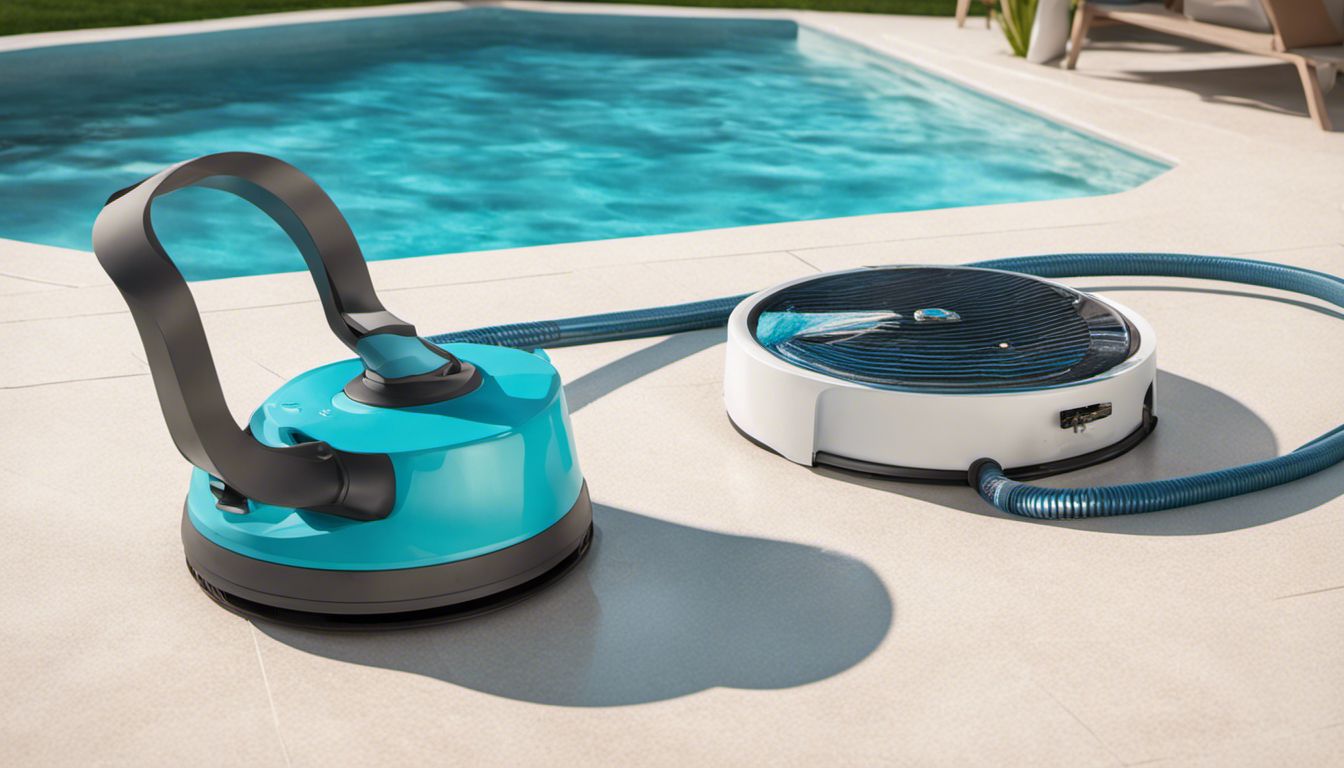 Skimming, brushing, and vacuuming are essential tasks in professional pool maintenance services. These activities play a crucial role in removing debris from the pool water. Skimming involves using a net or skimmer to remove any surface debris like leaves and litter that accumulate on top of the water.
Skimming, brushing, and vacuuming are essential tasks in professional pool maintenance services. These activities play a crucial role in removing debris from the pool water. Skimming involves using a net or skimmer to remove any surface debris like leaves and litter that accumulate on top of the water.
By regularly skimming the pool, you can keep it looking clean and inviting.
Brushing is another important step in pool maintenance. It helps to clean not only the walls but also hard-to-reach areas such as steps, ladders, and corners known as "dead spots." By thoroughly brushing these surfaces, you can prevent algae growth and keep your pool free from unsightly stains.
Vacuuming is done to remove debris that has sunk to the bottom of the pool or cannot be reached with a skimmer or brush. This task ensures that all dirt particles are effectively eliminated from your pool, maintaining its clear and sparkling appearance.
Chemical analysis and rebalancing
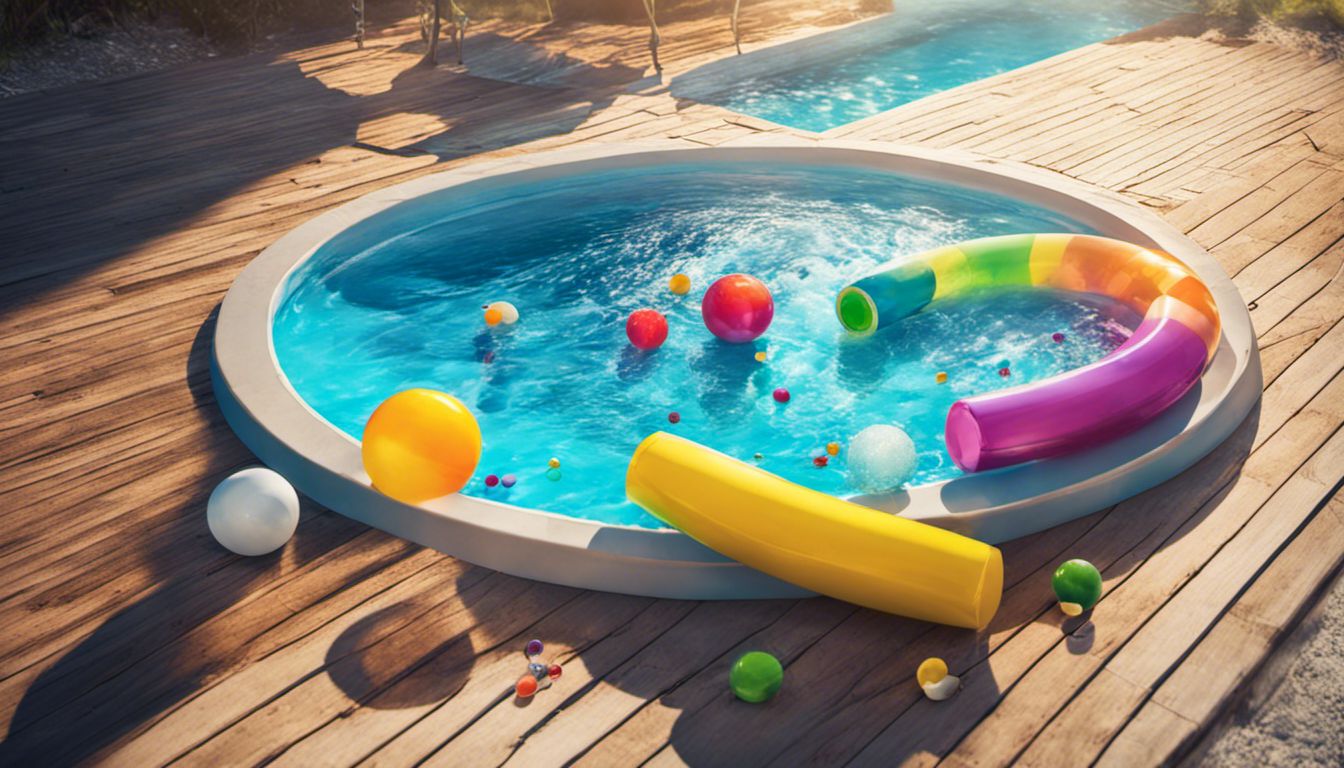
Professional pool maintenance services include chemical analysis and rebalancing to ensure the proper balance of chemicals in your pool water. This involves regular monitoring and testing of the pool's chemical levels, such as chlorine, pH, alkalinity, and calcium hardness.
By maintaining the water's balance, issues like algae growth and bacterial contamination can be prevented. These services also cover the costs of the necessary chemicals required for balancing the pool water, saving you time and effort in purchasing them yourself.
With professional assistance, you can trust that your pool will have clean and safe water all year round.
Filter and equipment maintenance
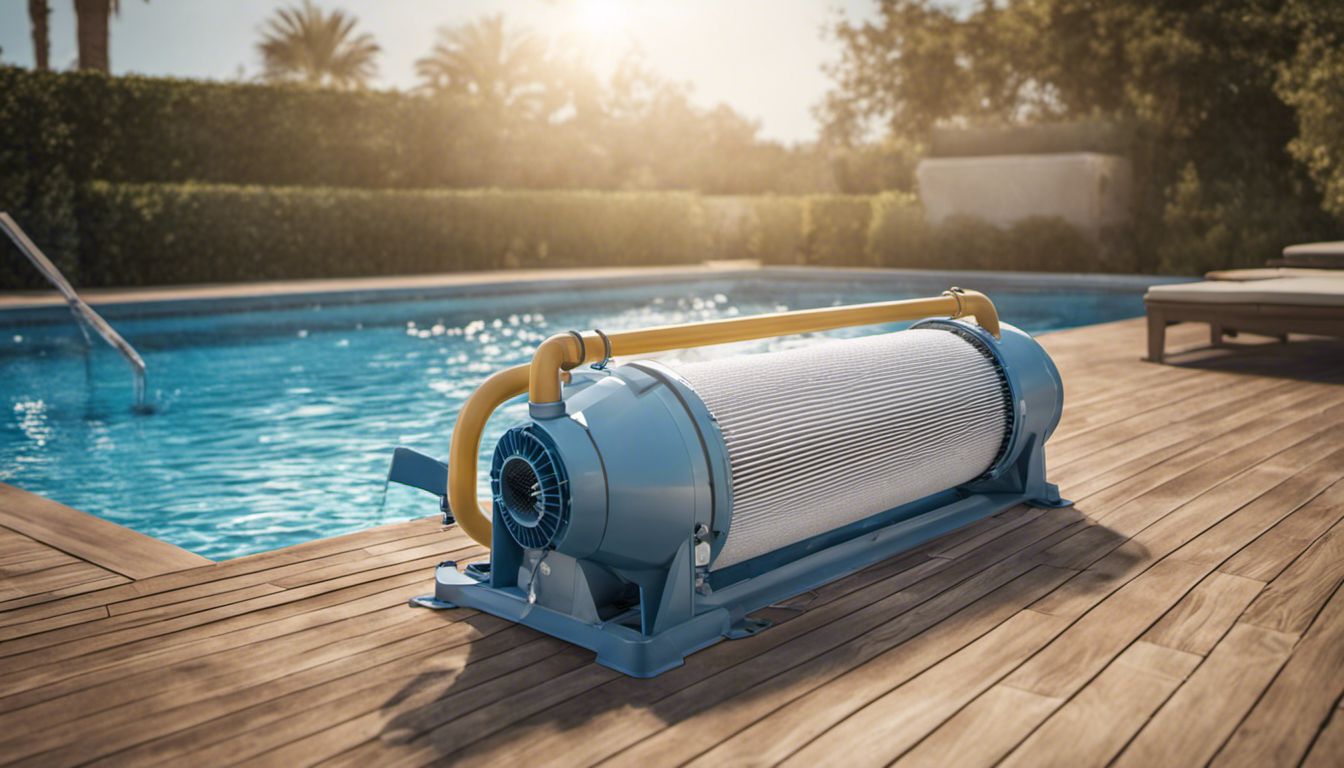
Regular filter and equipment maintenance is an essential part of professional pool maintenance services. It helps to ensure clean and safe water by removing debris and contaminants from the pool.
By keeping the filter clean, it optimizes the efficiency of the filtration system, allowing for proper water circulation throughout the swimming pool. Equipment maintenance also plays a crucial role in preventing costly repairs and replacements.
Pool professionals inspect and lubricate pump motors, check for leaks in plumbing lines, and test the functionality of pool heaters as part of their services. Taking care of your pool's filters and equipment not only extends their lifespan but also contributes to a hassle-free swimming experience all year round.
Seasonal full pool servicing

Professional pool maintenance services offer seasonal full pool servicing. During this service, a range of comprehensive cleaning and maintenance tasks are performed to keep your pool in optimal condition.
These tasks include cleaning the surface of the pool, vacuuming the pool to remove debris, and brushing both the walls and floor of the pool. In addition to cleaning, professional technicians also check and adjust the water chemistry levels, ensuring that pH levels are balanced and chlorine levels are properly maintained.
As part of seasonal full pool servicing, professionals may also inspect and maintain important equipment such as pumps, heaters, and automated systems to ensure they are functioning correctly.
DIY Pool Maintenance Tips

Learn the importance of regularly skimming and cleaning out baskets, proper vacuuming and brushing techniques, as well as how to test and balance chemicals for optimal pool maintenance.
Read more to keep your pool clean and sparkling!
Importance of regularly skimming and cleaning out baskets
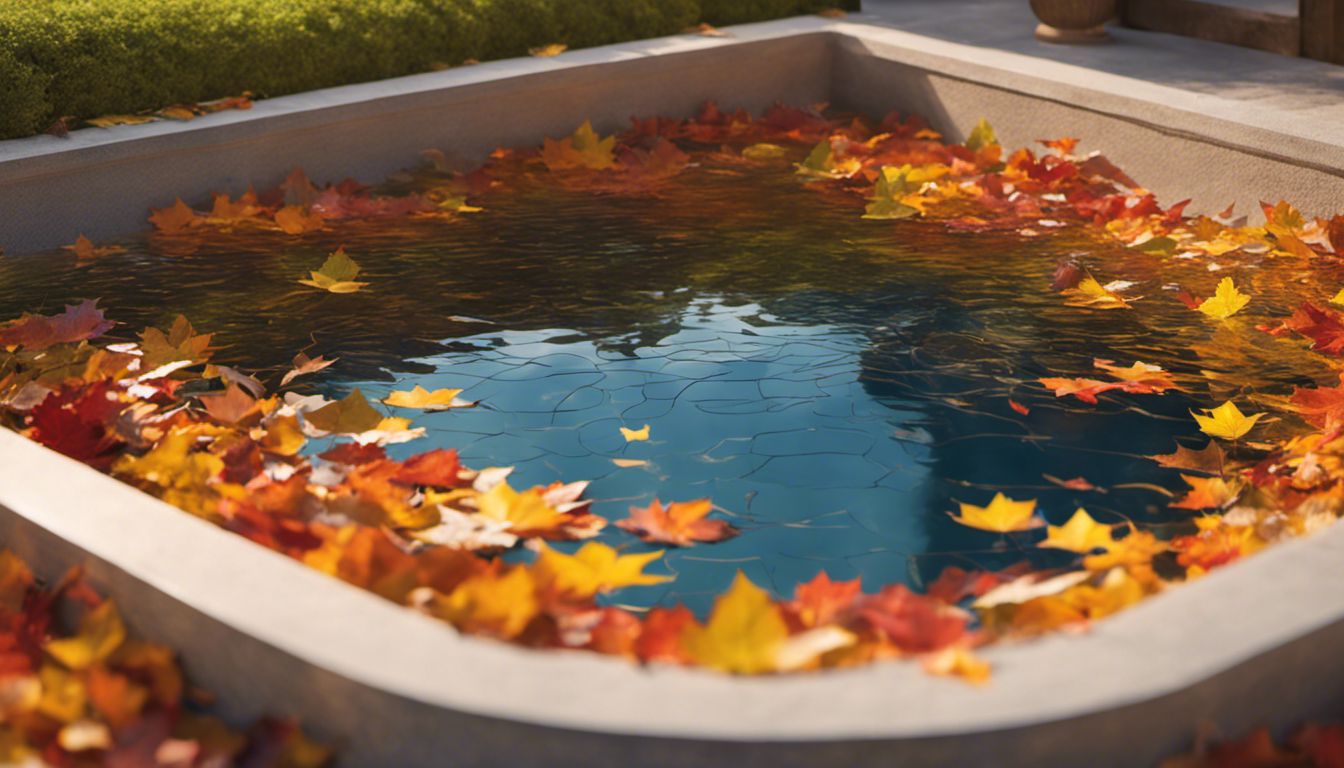 Regularly skimming and cleaning out baskets is crucial for effective DIY pool maintenance. By removing debris from the water's surface, skimming helps maintain cleanliness and prevents clogs in the pool pump.
Regularly skimming and cleaning out baskets is crucial for effective DIY pool maintenance. By removing debris from the water's surface, skimming helps maintain cleanliness and prevents clogs in the pool pump.
Cleaning the skimmer basket once or twice a week, depending on pool usage, ensures optimal performance. It is important to turn off the pool pump before removing and cleaning the basket to prevent any accidents.
Skimming and cleaning also play a significant role in preventing leaves, debris, and algae from accumulating in the pool, keeping it clean and inviting for swimming.
Vacuuming and brushing techniques
To keep your pool sparkling clean, regular vacuuming and brushing are essential techniques for DIY maintenance. Vacuuming not only removes heavy debris but also prevents potential issues that can arise if left unattended.
If you don't have an automatic cleaner or notice water problems, manual vacuuming is necessary to maintain the cleanliness of your pool. Additionally, regular brushing helps to eliminate algae and buildup on the walls and floor of the pool, ensuring clean and inviting water for swimming enjoyment.
By incorporating these techniques into your routine maintenance schedule, you'll be able to keep your pool in top shape and enjoy crystal clear waters all season long.
Proper chemical testing and balancing
Proper chemical testing and balancing are essential components of DIY pool maintenance. Testing chlorine levels, pH, alkalinity, and calcium is crucial for maintaining clean and safe pool water.
By regularly monitoring these factors, you can ensure that your pool water is properly balanced and free from contaminants. This will not only keep your pool looking inviting but also help prevent potential issues such as algae growth or equipment damage.
So remember, take the time to test and balance your pool's chemistry for a sparkling clean swimming experience.
Conclusion: The Benefits of Regular Pool Maintenance and Where to Find Professional Services

Regular pool maintenance is crucial for ensuring clean and safe water, preventing costly repairs, and extending the lifespan of your pool. By following the step-by-step guide provided in "The Essential Guide to Pool Maintenance: Everything You Need to Know," you'll have all the knowledge needed to properly care for your pool.
For those who prefer professional help, there are reliable services available that offer comprehensive skimming, cleaning, chemical analysis, equipment maintenance, and even seasonal full pool servicing.
Keep your pool in top-notch condition with regular maintenance and enjoy a fun and refreshing swimming experience all year round.
FAQs
1. How often should I clean my pool?
It is recommended to clean your pool at least once a week to remove debris and maintain water quality.
2. How do I test the chemical levels in my pool?
You can test the chemical levels in your pool using a testing kit or strips, which measure chlorine, pH, and alkalinity levels.
3. What temperature should my pool be kept at?
The ideal temperature for a swimming pool is usually between 78-82°F (25-28°C), but it can vary depending on personal preference.
4. How frequently should I check the water level in my pool?
You should check the water level in your pool regularly, ideally every few days, and ensure it remains within the optimal range indicated by the skimmer or filter system.
5. Can I hire a professional for regular pool maintenance?
Yes, you can hire a professional service provider who specializes in routine maintenance tasks such as cleaning filters, balancing chemicals, and inspecting equipment to keep your pool well-maintained throughout the year.











